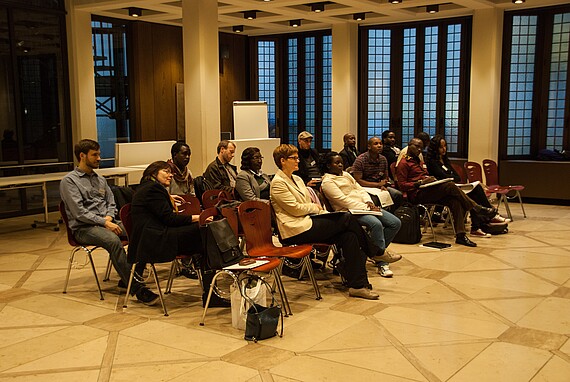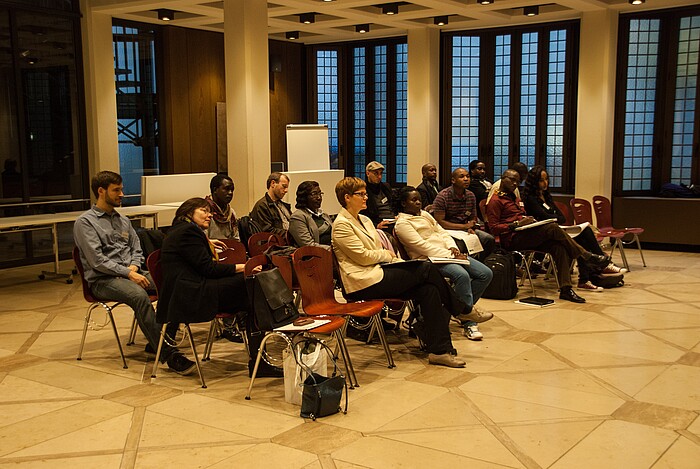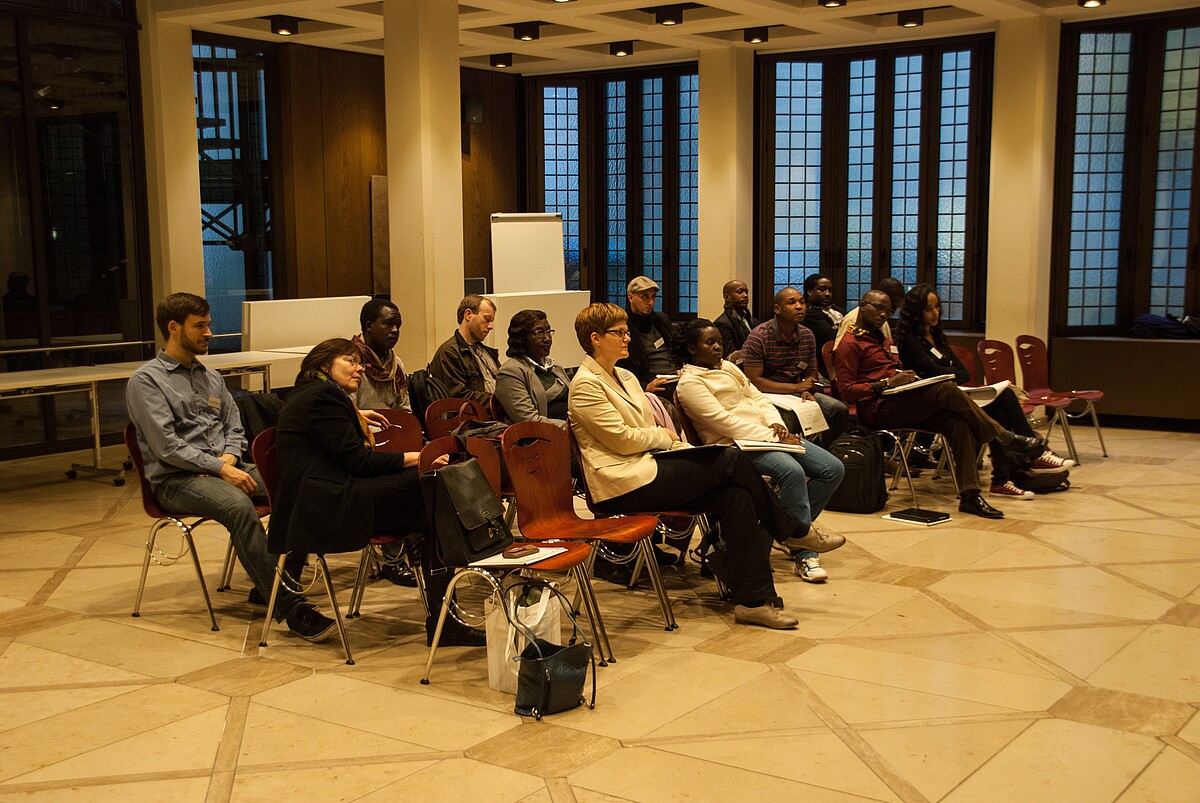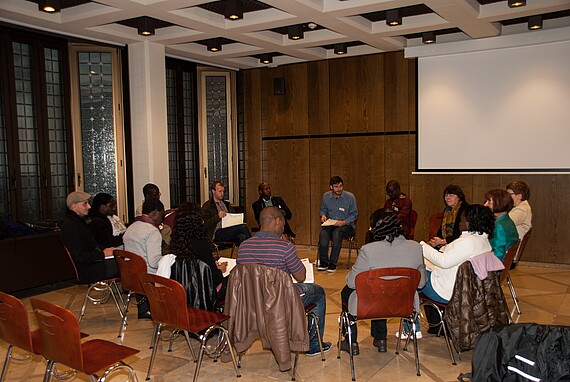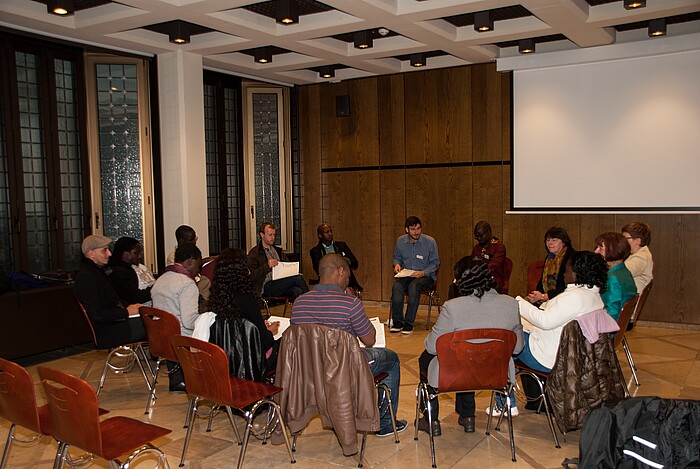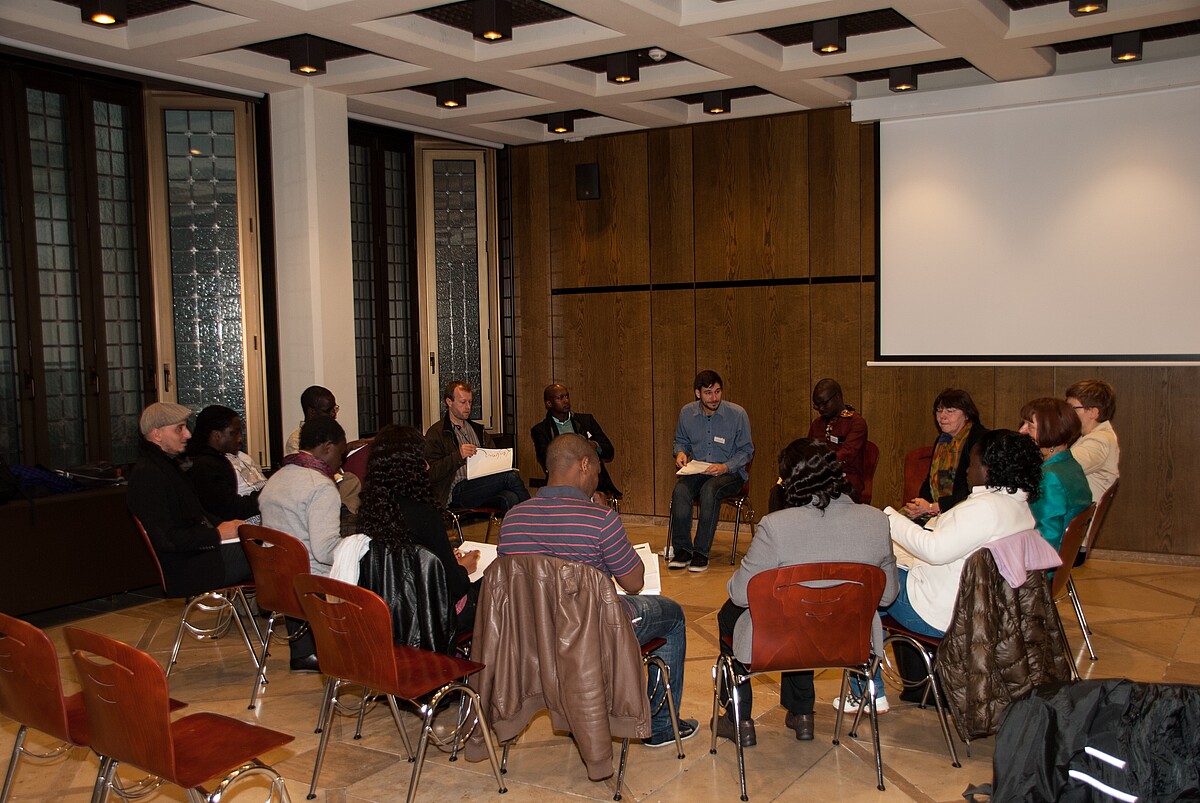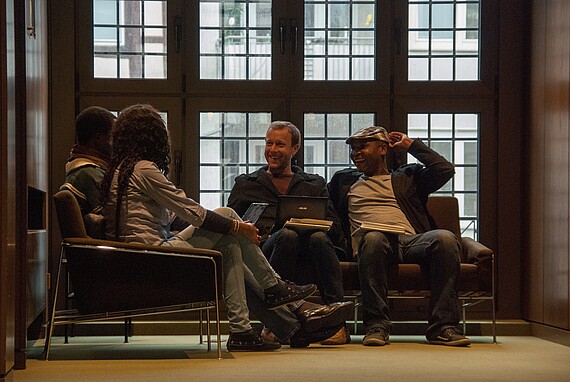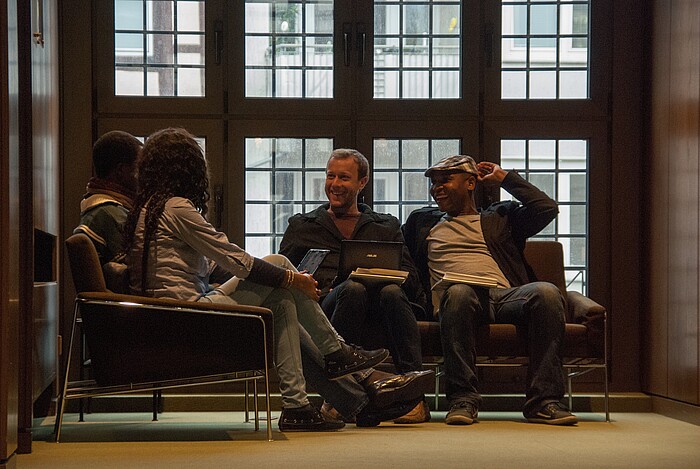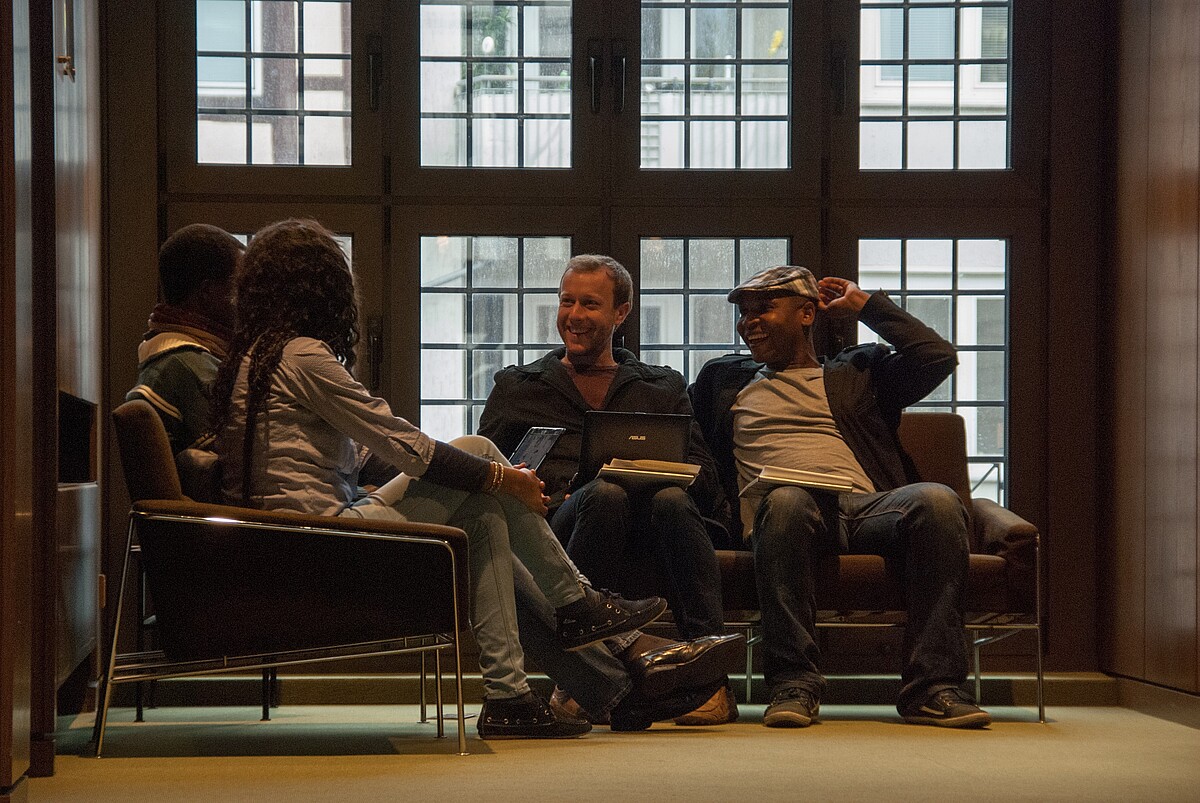Kick-Off Workshop
The Kick-Off Workshop, October 11th-12th 2013, served multiple purposes. First, the direct communication among the fellows and between the coordination team in order to discuss the projects, as well as questions, and concerns.
The scope of issues ranged from practical problems that occur in trans-continental working relationships to identifying commonalities and differences in the various projects.
The Fellows' Projects
Three cross-cutting themes were pointed out, respectively shared concepts or concordant approaches that also account for how these projects relate to ongoing scholarly debates in the international context and thus propose to open up new vistas for social and cultural research in Africa.
- Conceptualising Violence, Conflict and Insecurity
- Sites of Textual Knowledge: Production, Dissemination, Appropriation
- Bringing in Archaeological Expertise in Investigating Current Questions and Problems Concerned with the Past and Present of African Polities
The projects work on crucial current desiderata in social and historical research on Africa and help to overcome predominant biases in previous research. According to German Social Anthropologist Thomas Bierschenk, mainstream social and cultural research on postcolonial Africa still overemphasises what have been designated general indicators for failing economic and democratic development, and therefore tends to underestimate significant social and cultural transformations that African societies and polities have undergone in the course of the last 50 years. To the effect that the social field of forces has been marked by processes of increasing diversification and pluralisation, on the one hand, by a growing global visibility and agency of Africans on the other. Bringing in history – or better historiographically informed approaches – thus means to acknowledge that the postcolonial present has already a past of its own, marked by continuities, turning points and paradigmatic changes. Catalysts for change, such as enhanced mobility, urbanisation, educational expansion, and the accelerating spread of communication technology have considerably contributed to enlarge the frames of reference for African social actors.
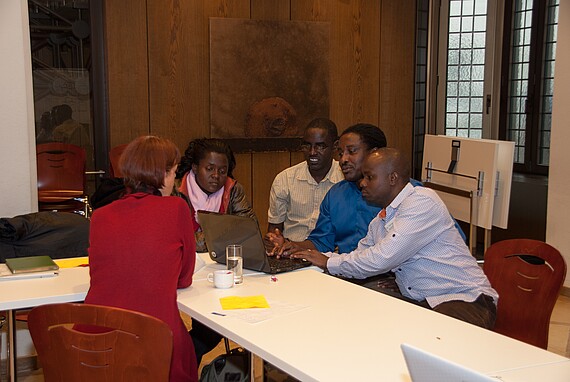
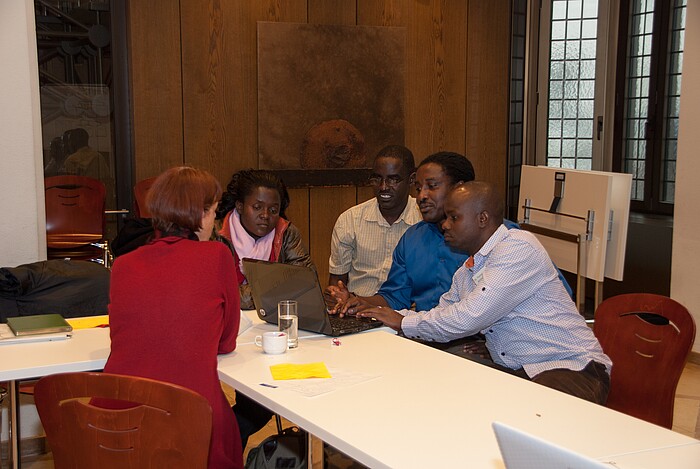
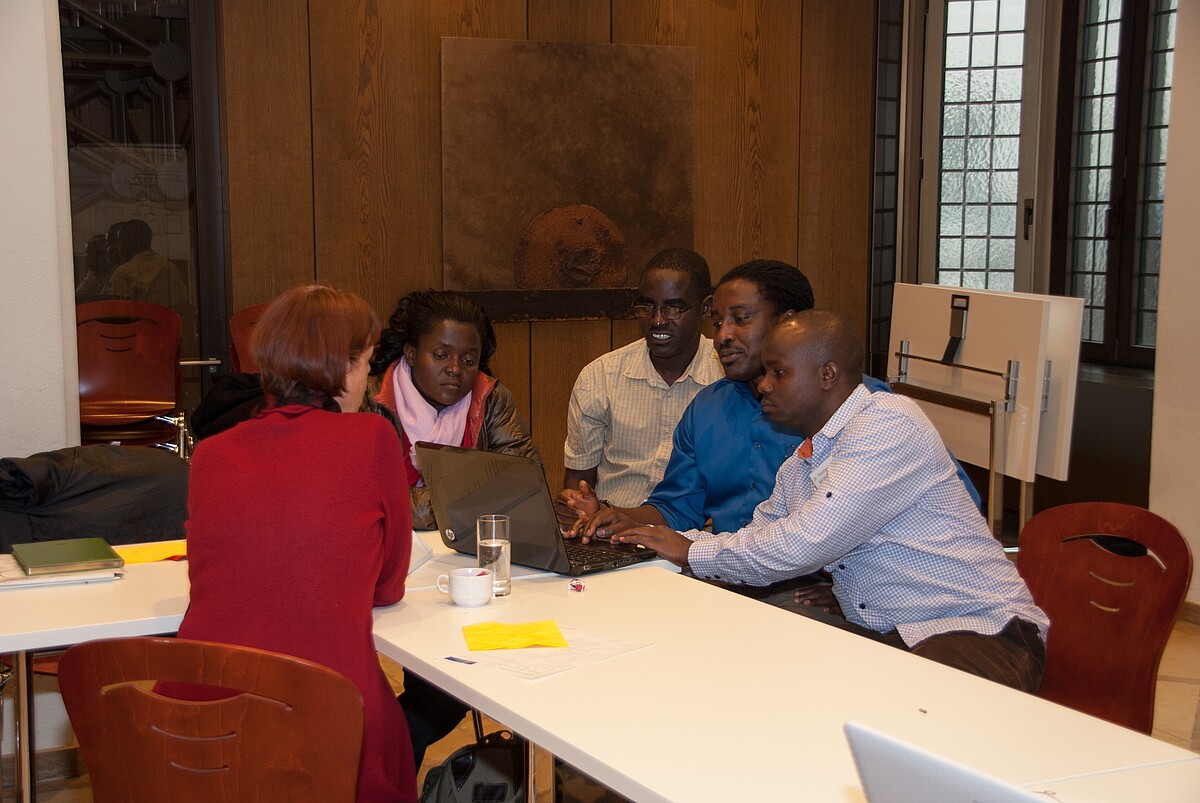 ©
Frederik Holme 2013
©
Frederik Holme 2013
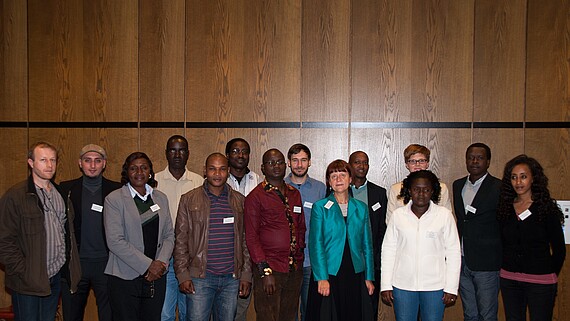
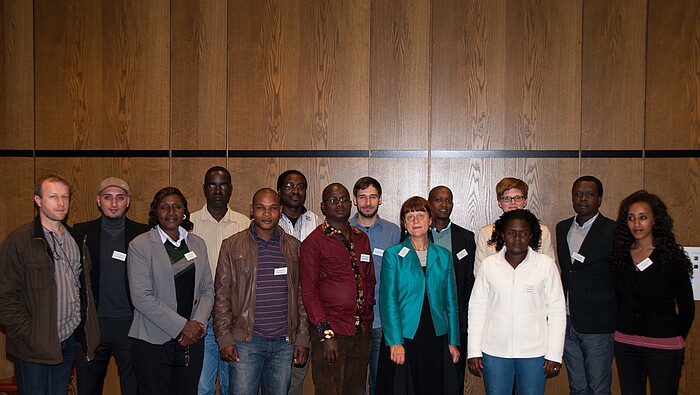
 ©
Frederik Holme 2013
©
Frederik Holme 2013
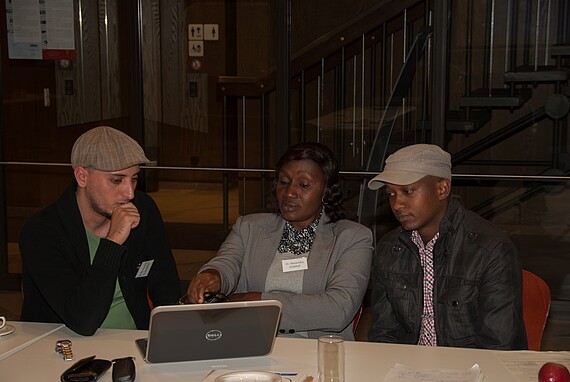
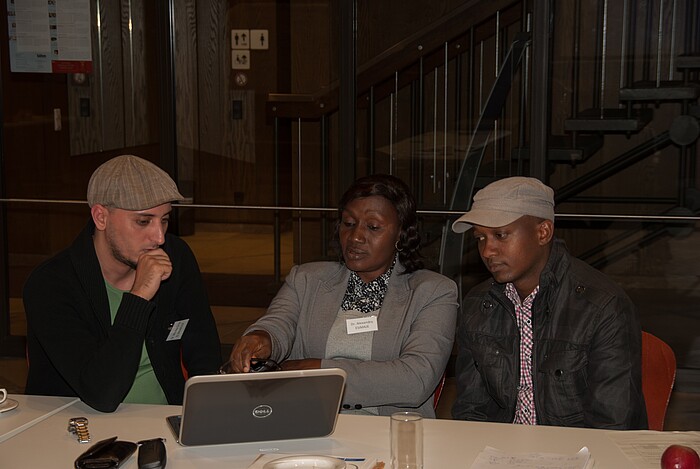
 ©
Frederik Holme 2013
©
Frederik Holme 2013

